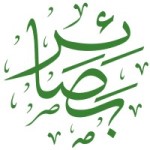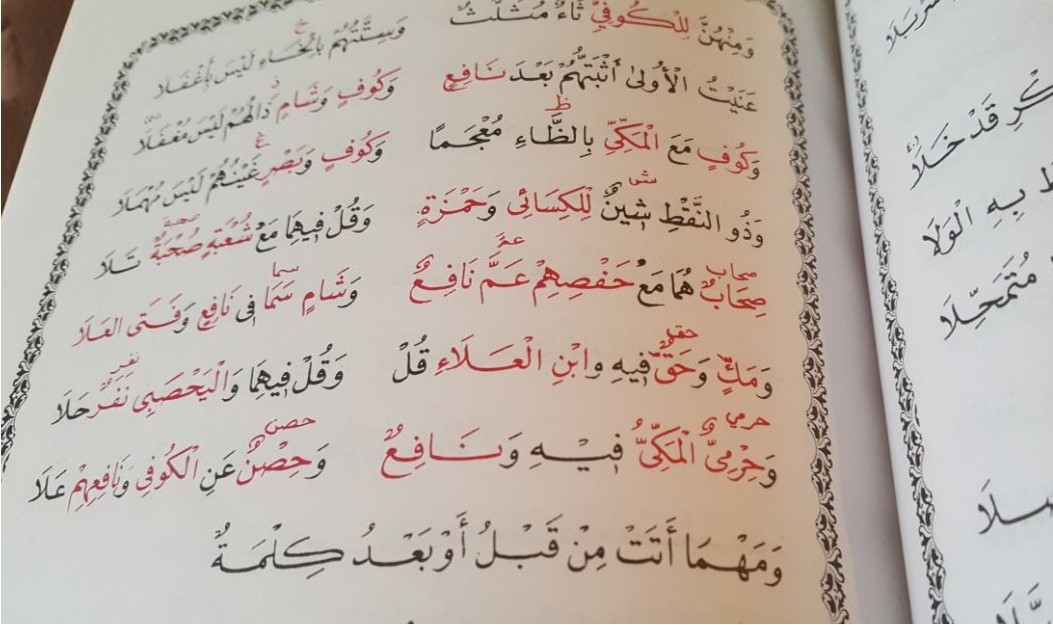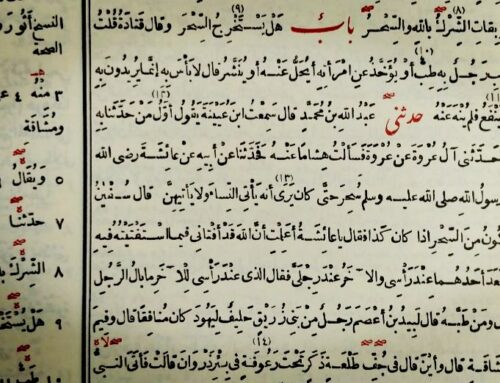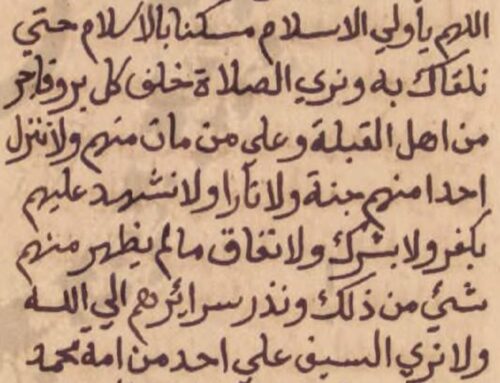Translated by Mufti Javed Iqbal
[Translator’s Note: The following excerpt is a translation of the preface to Difā-i-Qirā’āt, a masterpiece authored by the erudite scholar, Qārī Muḥammad Ṭāhir Raḥīmī al-Madanī (raḥimahullāh). The Urdu work, close to nine hundred pages long, is a detailed response to the feeble objections of a notorious hadith rejecter, Tamanna ‘Imadi (d. 1972), against the variant Qur’anic readings (qirā’āt). Although the work primarily focuses on the issue of qirā’āt, the author’s preface which underscores the factors behind ‘Imadi’s critical mindset and highlights some of his glaring errors, is strikingly relevant to people who display hadith-rejection tendencies at varying levels. The translation has been paraphrased in many places to enhance readability, whilst ensuring it remains faithful to both the content and the tenor adopted by the author.]
Introduction
All praise is for Allah, and peace be upon His chosen servants. To proceed:
The enemies of Islam have always been engaged, through many different means, in trying to create discord and stir doubts within Muslims regarding the primary source of Islamic legislation, the Noble Qur’an. Their primary purpose behind this is to make Muslims who are weak in faith renegade from Islam. What is even more unfortunate is that after the advent of European and German Orientalism in particular, some Muslim scholars have also become influenced by the veneering of such enemies, and ensnared in their trap of deception and lies. Instead of defending Islam, they then echo the opinions of the Orientalists and start to cast doubts regarding the Noble Qur’an, and through this approach of theirs, they cause more harm to Islam and Muslims than the actual enemies of Islam.
The poet says:
An ignorant person is not harmed by his enemies, as much he harms himself.
The objective of such people, either knowingly or unknowingly, is to dismantle and hollow out the foundations of Islam. However, Allah says:
They wish to blow out the Light of Allah with their mouths, and Allah rejects everything short of making His light perfect, no matter how the disbelievers may hate it.[1]Qur’an, 9:32
The light of Allah is sneering at the antics of disbelief. This lamp cannot be extinguished through blowing.
The Topic of the Book
In this book, we have, with Allah’s grace, provided satisfactory, dumbfounding answers to some new objections to the variations in the Qur’anic readings (qirā’āt) and the seven ways (aḥruf). The critic who has raised these doubts declared the significant, mass-transmitted (mutawātir) hadith on the seven ways (aḥruf) to be fabricated, essentially lifting trust from all the predecessors of the Ummah through this heinous opinion.
No Sunni Muslim of sound belief, who possesses even a spark of knowledge and understanding, will be audacious enough to make such a statement. This musing can only be uttered by a total ignoramus devoid of even an iota of knowledge. But ironically, it seems this critic is aspiring to be the most learned man (‘allāmah) of the era and the next Revivalist of the Second Millennium (mujaddid-i-alf-i-thānī). It is beyond belief how he could make such an ignorant statement!
The First Major Mistake and the Critic’s Academic Prowess
Dear critic! The first mistake you made was to analogise the narrators of the qirā’āt to hadith narrators, despite there being a huge difference between the two. Investigating the narrators of a mass-transmitted (mutawātir) matter is not an objective in itself; it is merely of a secondary, supportive nature. In reality, a mutawātir matter will remain decisively-established. If there is any defect at any place in the chain, it will not be harmful at all. However, this is provided it is in fact a defect. It should not be that despite the clear text stating Aḥmad ibn Yazīd al-Ḥulwānī al-Muqri’ to be the student of Qālūn,[2]Lisān al-Mīzān, vol 1 pg 493 there is a refusal to accept him as such; or Aṣbahānī Abū Bakr, one of Warsh’s narrators, is misunderstood as Qutaybah ibn Mahrān Aṣbahānī, the student of Kisā’ī, and thus it is claimed that Aṣbahānī Abū Bakr is not a student of Warsh but rather of Kisā’ī! Similarly, the critic claims that Ibn Kathīr al-Makkī (b. 45 ah) was underage when ‘Abdullāh ibn al-Sā’ib (d. 65 ah) passed away, even though Ibn Kathīr was twenty years old at the time. Considering a twenty-year old to be underage is surely the literary marvel of this critic alone.
Moreover, the academic capability of an individual who makes grammatical, linguistic and contextual mistakes in translating Ibn Jarīr al-Ṭabarī’s Arabic text, failing to grasp its basic meaning and making nonsensical points in the process, and who translates al-Dārī as “one who lives in Rayy”, is beyond our understanding; it is probably a form of divinely-gifted knowledge.
An anecdotal point of this most learned critic is that Haḍrat does not even know that authors sometimes refer to themselves in the third person, to reiterate the attribution of the respective work to themselves. Ibn Jarīr al-Ṭabarī writes on numerous occasions in his Qur’anic exegesis (tafsīr): “Abū Ja’far said”. The statement “Abū Dāwūd said” in Sunan Abī Dāwūd is very well-known. The erudite Ibn al-Jazarī says at the onset of his Ṭayyibat al-Nashr: “Muḥammad, namely Ibn al-Jazarī, said”. Even in the Noble Qur’an, in instances such as: “Allah said”, Allah has referred to Himself in the third person. In light of this, how did the critic deduce from the many instances of: “Abū ‘Amr al-Dānī said” in al-Taysīr that it is not even al-Dānī’s work?
Under the biography of ‘Abd al-Raḥmān ibn Hurmuz al-A’raj, the critic translates the word عرضًا in following statement:
وقال الداني روي عنه القراءة عرضًا نافع بن ابي نُعيْم
to mean listening to him from memory, whereas the correct translation is reading to him from memory. Truly such academic capability is to be commended!
Furthermore, whilst analysing the narrators of the qirā’āt, it was necessary to study the books dedicated to discussing these narrators. Tahdhīb al-Tahdhīb, Lisān al-Mīzān and similar books are essentially books on hadith narrators. The mention of some reciters (qurrā’) who were also hadith narrators is incidental, and only with reference to their probity in narrating hadiths. The actual books specifically discussing qirā’āt narrators are Ma’rifat al-Qurrā’ al-Kibār of al-Dhahabī, Ṭabaqāt al-Qurrā’ of Ibn al-Jazarī, and so forth.
We will not be cynical and suggest that the critic had access to the biographical works on the reciters (qurrā’), was fully aware of their contents, but despite this purposefully avoided them. Instead, we will hold a good opinion and propose that he did not have these works at hand, and so his knowledge on qirā’āt narrators remained deficient. Nonetheless, in such circumstances his work cannot be called research or a fair critique. A researcher on any topic is obliged to obtain all books relevant to the topic he wishes to research and only then embark on his study. However, in this case, it seems that the critic had first formulated a wrong hypothesis regarding the qirā’āt. Thereafter, whatever he found against his hypothesis he chose to ignore, but whatever he felt could remotely support his idea, he included it immediately, without any hesitation and without any research.
The Second Mistake – Conflating Hadith and Qirā’āt
The second mistake you made is that when a reciter or qirā’āt narrator was declared weak by a hadith expert (muḥaddith) with respect to hadiths, you declared him to be weak in qirā’āt too. This is utterly absurd and unjust. A lack of expertise in one field does not at all necessitate a lack of expertise in other fields. If a proficient reciter (muqri’) were to declare a hadith expert to be weak in the field of qirā’āt, it would not mean the hadith expert is necessarily unaccomplished and inexpert in the field of hadith also.
The Third Mistake – Declaring the Qirā’āt Narrators to be Rafiḍīs [3]Ithna ‘Ashari Shias who hold, amongst other heretical beliefs, the belief that the Qur’an is distorted.
Thirdly, a fundamental error you made is to declare many qirā’āt narrators to be Rafiḍī, based on aberrant opinions or the statements of Rafiḍīs themselves, even though the Rafiḍīs do not spare even the Companions; how is it expected for them to spare the imams?!
In reality, the Rafiḍīs consider the different qirā’āt to be distortions, through which they substantiate the Qur’an being distorted. You have also deemed the different readings to be distortions, hence making it necessary to agree with the Rafiḍīs that the Qur’an is distorted – may Allah forbid. If the claim is wrong, the evidence is also wrong. And if the evidence is correct, the claim is also correct.
Furthermore, the Rafiḍīs also thought it an idea to class the Sunni narrators of qirā’āt to be Rafiḍīs, so that they become censurable and blameworthy amongst the Sunnis, thus losing credibility in their eyes. The consequence would be that Sunnis would conclude that these variant readings are wrong – may Allah forbid. Dear critic! You have either failed to understand this tactic of the Rafiḍīs, or else you have joined their ranks.
The Fourth Mistake – Deeming the Qirā’āt a Plot of Kufan Heretics
Fourthly, a grave error you made was to declare the variant readings (qirā’āt) to be the plot of the heretics of Kufa and their non-Arab emancipated slaves. And for the record, being an emancipated slave is an honour: Allah’s Messenger (sallallahu alayhi wasallam) emancipated his adopted son, Zayd ibn Ḥārithah (raḍiallāhu ‘anhu), and also his son, Usāmah ibn Zayd (raḍiallāhu ‘anhu). It is the sheer magnificence of the Qur’an that it elevated the status of emancipated slaves who were non-Arabs.
All of the qirā’āt are part of the Qur’anic miracle. Let alone emancipated slaves, even prominent masters of eloquence amongst the Arabs were unable to present anything like the Qur’an, but here you are saying that emancipated slaves, and non-Arabs at that, concocted these seemingly miraculous readings? May Allah forbid! Can the Qur’anic miracle stay intact in this way? In this case, do Muslims have the right to say nobody has been able to present anything like the Qur’an until today?
In short, the nobility of the Qur’an is loftier than the nobility of lineage [i.e., the fact that prominent narrators of the qirā’āt were non-Arabs is of no relevance whatsoever]. This is why a righteous non-Arab scholar is considered commensurable (kuf’) for a girl of prophetic lineage.[4]Radd al-Muḥtār, vol 2 pg 323
As for the heretics and the Rafiḍīs of Kufa, they tried their utmost to efface the divinely-revealed qirā’āt and attempted to add a number of fabricated words to the Qur’an, e.g., bi wilāyat ‘aliyy.[5] This is as claimed in their authentic, canonical works like Al-Kāfī. For example, verses 1-2 of Surah Ma’ārij are alleged to have originally been as follows, with the addition of bi wilāyat ‘aliyy: A supplicant asked about a punishment bound to happen [1]; to the disbelievers (of the authority of Ali: bi wilāyat ‘aliyy); of it there is no preventer [2]. Their campaign was to oppose the Qur’anic readings, distort the Qur’an and add fabricated words to it. On the other hand, the variations in the Qur’anic readings (qirā’āt) were divinely-revealed in Madinah Munawwarah; how then did the Rafiḍīs begin to disseminate them?
The Fifth Mistake – Claiming the Qirā’āt are Inauthentic
Fifthly, you made the mistake of deeming the mass-transmitted (mutawātir) readings as inauthentic. Let alone the differences in the vowelisation (i’rāb), letters and words of the Qur’anic readings, even the sounds of certain differences in the qirā’āt have been preserved as transmitted: how the imāla is done, what iẓhār sounds like, how the ghunna sound has been transmitted, how tashīl is articulated, and so forth. Nobody can introduce any change or distortion in these sounds, even in today’s age.
So, were previous ages worse than today’s contentious times? Was it possible that in previous times, let alone the sounds, even the vowelisation, letters and words were altered, whilst all the scholars, proficient reciters and jurist imams just watched like spectators?
The Sixth Mistake – Deeming the Hadith on the Seven Ways (Aḥruf) to be Fabricated
The sixth grave mistake you made is to declare the mass-transmitted, decisive hadith on the seven ways (aḥruf) to be fabricated – may Allah forbid! I don’t know in which book of fabricated narrations you came across this. Deeming something real as unreal is synonymous to saying day is night. All you had to do was provide a reference to establish this hadith is fabricated, or in the least, a weak hadith, so that your extensive reading could be praised. But the truth is this can never happen until the end of time. It is like a person saying he has decisive evidences to prove there is no city on earth called Makkah Mukarramah or Madinah Munawwarah. Without a doubt, such a person would be considered insane and mentally deranged. Use your head, and do not trivialise the authentic, mass-transmitted, divinely-revealed qirā’āt, all of which are narrated through unbroken chains.
The Underlying Factors Behind the Critic’s Mindset
The overall, general answer to the critic’s doubts is that the variations in qirā’āt are established through decisive, mass-transmitted narrations, and through the consensus and general acceptance of the Ummah. On the other hand, all of these doubts are merely fanciful and conjectural, and fanciful logical points are of no value when compared to that which is firmly-established.
The basis for these doubts, in fact the basis for the whole critical mindset of this critic, is founded on the following twelve principles:
- Aberration and eccentricity.
- Innovation
- Declaring the whole ummah to be wrong and attempting to divide the whole nation.
- Criticising and scathing all the pious predecessors, as a reflection of the hadith: “and the last of this ummah will curse the first of them”.
- Causing contention in end times, reflecting the idea of: “oppose: you shall receive recognition”.
- Discrediting authentic hadiths, solely on the basis of conjecture and speculation.
- Discrediting the variations in the divinely-revealed Qur’anic readings (qirā’āt), out of following one’s based desires.
- Distorting established realities to deem the real as unreal and vice versa, merely on the back of conjectural, fanciful ideas.
- Adopting the track of the enemies of Islam, Rafiḍīs and Orientalists, instead of following the way of Islamic scholars.
- Conceit, self-confidence, arrogance and excessive ignorance.
- Strengthening the cause of hadith rejectors.
- Poor knowledge of Arabic syntax (naḥw) and related sciences.
Conclusion
In the current era, most of the signs of end times have occurred. Amongst them is lack of knowledge, widespread ignorance and being opinionated. When heightened ignorance is compounded with criticising and attacking the predecessors, the intellect becomes impaired. The inevitable consequence of this is that such a person contorts the realities established by the Quran, Sunnah and affirmed history. In every place, the critic has, by virtue of his brilliant intellect, presented a masterfully innovated hypothesis, which is undoubtedly lifeless. Thereafter, anything which went against this hypothesis, be it regarding the variations in qirā’āt, hadith narrations or historical incidents, was unreservedly refuted by the critic. To add insult to injury, that which has been mass-transmitted and unanimously accepted throughout the ages by all the erudite scholars and reformers of the Ahl al-Sunnah wa’l-Jamā’ah, was declared unreliable and untrustworthy with one stroke of his pen. Whenever he chanced upon something from these people to support his hypothesis, he quickly latched onto it but rejected everything to the contrary. He did not stop here, but went a step ahead by labeling his own hypothesis the reality. And to Allah we complain.
References
| 1 | Qur’an, 9:32 |
|---|---|
| 2 | Lisān al-Mīzān, vol 1 pg 493 |
| 3 | Ithna ‘Ashari Shias who hold, amongst other heretical beliefs, the belief that the Qur’an is distorted. |
| 4 | Radd al-Muḥtār, vol 2 pg 323 |
| 5 | This is as claimed in their authentic, canonical works like Al-Kāfī. For example, verses 1-2 of Surah Ma’ārij are alleged to have originally been as follows, with the addition of bi wilāyat ‘aliyy: A supplicant asked about a punishment bound to happen [1]; to the disbelievers (of the authority of Ali: bi wilāyat ‘aliyy); of it there is no preventer [2]. |








Thanks. Very informative.